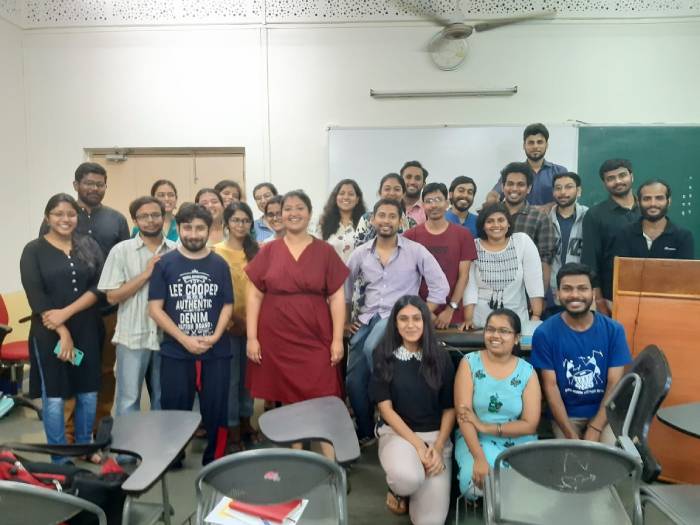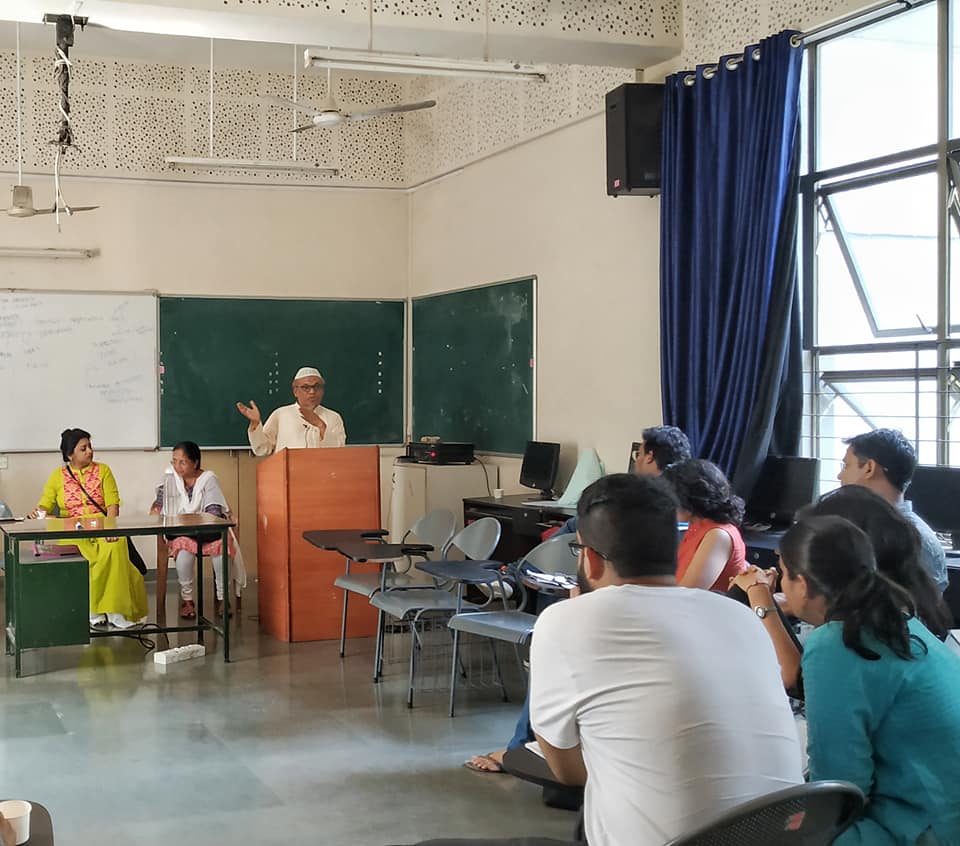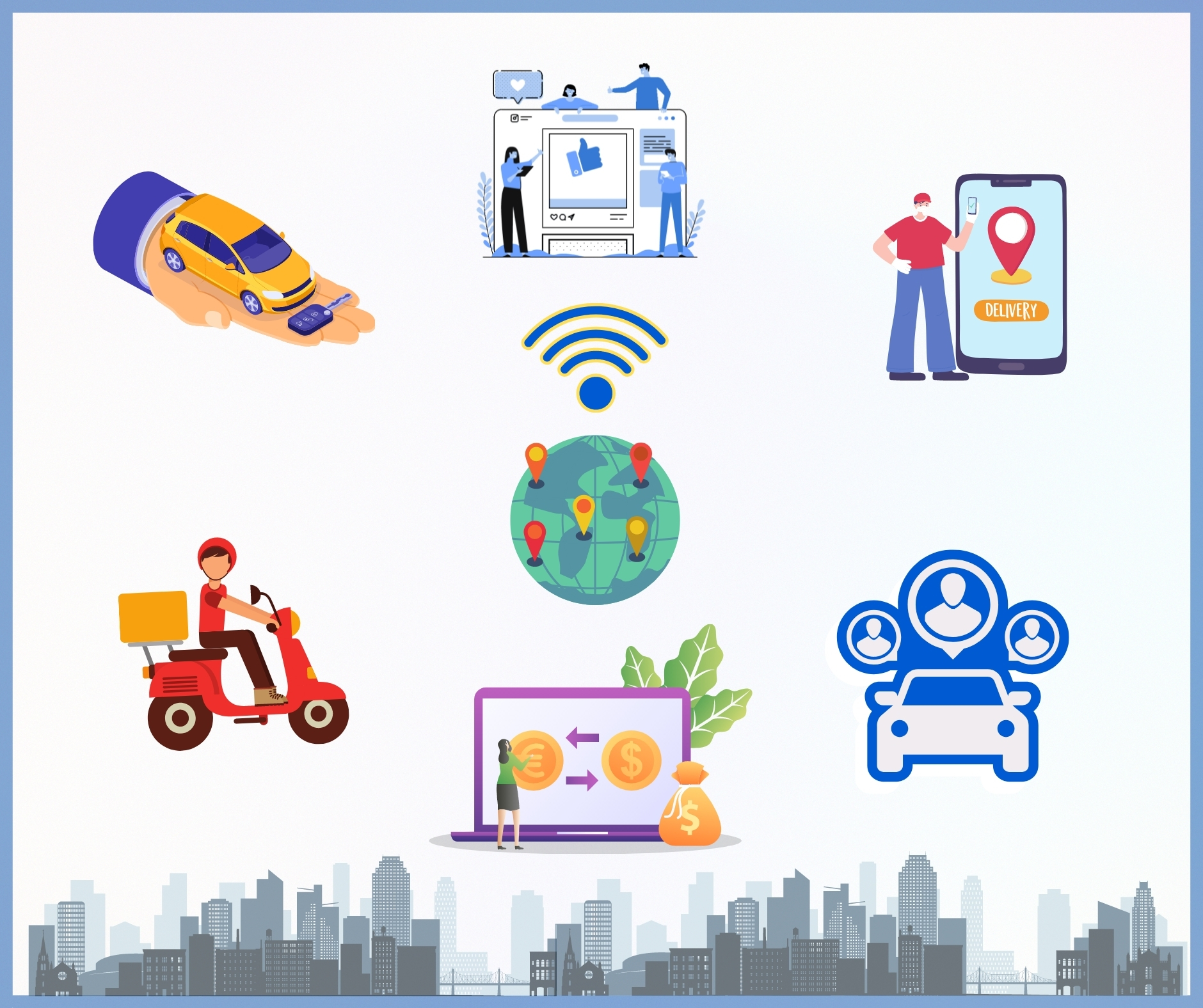Urban Futures
Urban Futures is a workshop based course which is driven by experts and practitioners who explore facets of the urban with the uncertainties and needs of the future society in mind. The workshop course focuses on broadly thinking about the future of the world — from the point of view of how India views the changing world and how the changing world views India.
We understand future here not as a temporal category of a distant future that is only to be speculated but as a temporal reality which emerges from the present and is shaped by us and systems around us. Hence to engage with the future is to reflect on some of these emergent trends, their significance and place ourselves in relation to these. It therefore requires understanding the idea and nature of change — both social (mobilizations, movements) and economic (new economies, associated governance challenges) and the embedding the self, its place and possibility, in the larger narrative of change.

Exploring platform economies – 2019
Resource Person – Aditi Surie
Students participated in a workshop conducted by Aditi Surie, Sociologist, IIHS. Aditi's own research focuses on shifting modes of labour within digital platforms, and understanding the ways in which labour and technology interface with each other in these economic models.
The workshop was focused centrally on exploring urban futures through computational thinking and algorithmic management as tools of future technologies. The goal of this workshop is put students in the role of computer scientist or engineer (creator); specifically not to teach everyone to think like a computer scientist, but rather to teach them to apply these common elements to solve problems and discover new questions that can be explored within and across all disciplines, thereby putting them in the position of creator, to imagine how technology can be used to adapt, change, transform cities, city processes and outcomes.
At the end of the 5-day long workshop, students made presentations on the ways in which their chosen subject area could be impacted by platform technology. They presented what the future of service provision would look like, how its actors would be engaged, and its implications for governance.

Thinking about Urban Futures: Community-driven Agendas – 2018
Resource Person – Leo Saldana
The Centre organized a panel discussion through which students learn to identify contemporary urban issues, analyze them, and offer alternative solutions that emerge from the communities that live, work and make the city. Leo Saldanha from Bangalore’s Environmental Support Group who work on various environmental conflicts in the city of Bangalore.
One of the major points raised during the discussion was the thorny issue of what should be the framework upon which community struggles for a right to the city should be based- should it be the notion of "sustainable development" that has become increasingly problematic because of its appropriation and (mis) use by different stakeholders or should struggles be based on the notion of the "just city"?

Digital Labour Markets and the Future of Work in Indian Cities.
Urban Futures - March 8th to 12th 2021
Digital Labour Markets and the Future of Work in Indian Cities
What is platform urbanism? How is it changing our cities and the nature of our urban economy? What are the challenges and issues that workers working in digital labour markets face?
Urban Futures is one of the hallmark courses of the Masters program in Urban Policy and Governance. Conceived as a space where students get to explore emerging and cutting edge urban issues, Urban Futures is usually held in the final semester of the Masters coursework. It is an intensive week-long workshop anchored by an urban practitioner.
This year, the Urban Futures course focused on the concept of Platform Economies and the way the character of urban work, mediated by media and technology, will change in the future. It was facilitated by Ms Aditi Surie from Indian Institute of Human Settlements, Bangalore. Aditi is an urban researcher, sociologist and a consultant with IIHS. Her area of expertise is at the complex and unfolding intersections of labour, technology and economy. You can find her official profile here: https://iihs.co.in/iihs-people/team/aditi-surie/
Sixteen students from second year MA/MSc Urban Policy and Governance participated in the course in March 2021. Due to Covid 19 restrictions the course was conducted fully online. Using labor platforms, specifically hyperlocal platforms, the students explored the techno-capital forms impacting what counts as work, how work is conducted, the relationship of workers to firms. They looked at mobility patterns, home services, delivery and logistics platforms that are present in Bangalore and other Indian metros. The focus was on understanding about the design, business decisions and technological set-up of a digital platforms and how this creates a digital labor market. These insights were then contextualized within the nature of precarious life and work in the Indian city. It brought home the multifarious factors that can cause inequality in the platform economy and explored what decent work means in the case of digital platforms.
UPG student Milan shared,
“The course on Urban Futures introduced me to the emerging field called Platform Urbanism. I was thoroughly engrossed in it and I enjoyed the topic. I was engaging with issues in Platform Urbanism for the first time and enjoyed the discussions. All in all, it introduced me to something new which I appreciate and the Prof ensured that learning remains active and thoughtful.”
“The was very well designed and focused. There was a lot of scope for discussion and deliberation. The assignments were fun, flexible. The content was not only relevant but also presented in a very engaging manner.” said Roopkatha, student UPG.
The classes and discussions were participatory and interactive where students used tools like Miro Board to interact with each other. Students were provided with readings to get a deeper understanding and perspectives on platform economy. The assignments were arranged in a way that drew from class activities and also provided in-depth research exposure.
Archana, a student, had the following to say
“The was rich in its curriculum and very engaging in terms of its pedagogy. I was personally able to appreciate the knowledge addition and the practical exercises we undertook to better understand digital platforms. Being fairly new to the topic, I felt like Ms. Surie gave us a great introduction to the subject. I still try to follow new developments in the field of digital platforms through newly published papers and Twitter news. I believe that instilling lasting curiosity is the best way that professors can ensure their students remain engaged with their subjects and I can say that that's more than true of the Urban Futures ”
Online mode was challenging than regular physical classrooms where teaching, discussions and activities are easier and engaging for both the instructor and students. About conducting the course online, Aditi shared, “The responses from students have been really great. Students were very nice and happy to do the course. 2021 was challenging and extremely energy consuming as an instructor. In the course, there is an activity to do an algorithmic walk around a particular space with a mindset of an algorithm and computational thinking. This was very complicated to do online because each student was in a different environment and a different physical space so it added some complexity to do those activities.”



